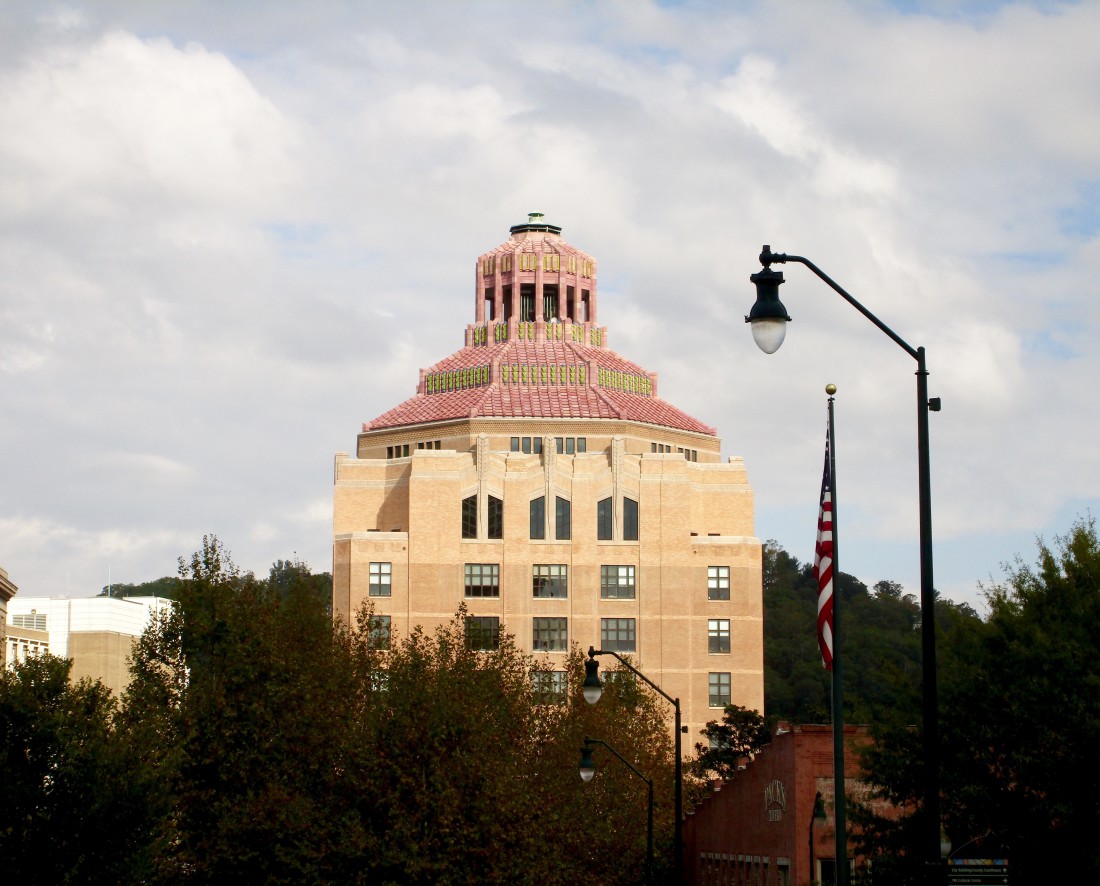City Council will shine a spotlight on the River Arts District at its Oct. 24 meeting, with agenda items including a proposed 70-room lodging reuse, parking problems and adoption of a zoning code intended to encourage vibrant mixed use in the area.
Consent agenda
Among 14 items on the consent agenda are final approval for renaming the Montford Recreation Center to the Tempie Avery Montford Center and a proposal to consider allowing a second pedal bicycle taxi service in town. Another item would give the go-ahead to apply for a $5,000 grant to pay for materials for gravel trail construction by students in the Green Opportunities landscape program on the Town Branch Greenway Corridor.
A significant chunk of change could go toward modernizing the mechanical elements of the elevators in City Hall. A resolution on the consent agenda asks Council to amend an existing contract with The Wooten Co., which is doing work on elevators in parking structures, to allocate $92,500 to allow design to proceed on the City Hall Elevator Automation Project. “This is an important project, as it needs to balance preservation of historic elements with modernization of the elevator mechanicals, as these 90-year-old units have exceeded their anticipated life cycle,” states a staff memo.
Presentations and reports
Council is slated to hear a report on the Energy Innovation Task Force from Council member Julie Mayfield and a review of the Aston Park Tennis Center four-year business plan.
City Council will also get an update on homestay permits and enforcement of short-term rentals. City Council requested the report at its Oct. 3 meeting after some Council members expressed concerns about property owners offering short-term, whole-house rentals in defiance of the city’s ban on such activities in residential districts.
Public hearings
Council will get a chance to weigh in on a plan to renovate a 1920s-era, 61,000-square-foot building at 95 Roberts St. in the River Arts District into lodging with 70 guest rooms, 4,600 square feet of retail and a 60-seat restaurant. White Point Partners is requesting a conditional zoning from river district to lodging expansion conditional zone. The property, owned by Greer Building LLC, lies within the proposed RAD form-based code zoning area. The Planning and Zoning Commission unanimously recommended approval of the rezoning at its Oct. 4 meeting.
A plan to institute a form-based zoning code in the River Arts District will continue its ping-pong trajectory between the Planning and Zoning Commission and City Council. The code, two years in the making, would create seven districts in the RAD designed to create a healthy mix of development. In July, Council voted 4-3 in favor of the zoning code, directing staff to take out lodging facilities of 20 rooms or fewer as a use-by-right from the mixed-use districts. Council remanded the code back to Planning and Zoning to get further public input on lodging uses. P&Z took up the question at its Sept. 6 meeting and rejected Council’s suggestion to remove lodging as a permitted use, favoring retaining the original draft of the zoning plan. Now, the proposal comes back to City Council.
A third public hearing slated for Council’s Oct. 24 meeting will take up the question of whether to ditch reduced parking standards in the River Arts District, a reduction that was adopted in 2011 before RAD’s resurgence prompted calls for more parking availability in the neighborhood.
Council also plans to consider residential density standards, another issue volleyed back by P&Z. At its Aug. 22 meeting, Council approved wording amendments to the Unified Development Ordinance to incentivize small-scale residential infill, such as establishing design guidelines for multifamily projects. It asked Planning and Zoning to examine reducing the minimum lot size standards by 20 percent and adjusting density standards citywide. On Oct. 4, P&Z unanimously recommended approval of the amendment. On Oct. 24, Council is scheduled to hold a public hearing on the matter.
Public comment
Council will hear comment from members of the public on items not previously discussed on Council’s agenda.
Asheville City Council meets at 5 p.m. in Council chambers on the second floor of City Hall at 70 Court Plaza, Asheville. The full meeting agenda and supporting documents can be found here.
For more of the latest city and county news, check out Xpress’ Buncombe Beat.




It would be unwise to change the previous parking codes by allowing more parking spaces in the River Arts District. The RAD was intended to be a walk able and bike able area free from the noise, exhaust and dangers associated with the automobile. Any back pedaling on parking codes would set a bad precedent for future development aimed at reducing the need for the automobile. As everyone knows our area is already inundated with cars and as more people continue to move here the congestion will only get worse. The City and County need to take drastic steps to curb the use of the automobile by providing alternative means of transport and by restricting the number of parking spaces. By reducing the number of spaces available people will find other ways to get around or will wait for non-peak times to travel and shop. Land freed from creating parking can be used for more housing, shops, ect which awards the local governments more tax revenue. Ill-informed business owners typically demand more parking near their establishment, even though numerous studies have shown an increase in sales when cars have their access restricted and people are able to move about freely
With the rising rates of obesity and diminishing activity levels people need to walk more and by making it harder to park they will be enticed to walk. Given that the RAD is located on relatively flat land it will be easy to get around on foot or bike. Bike shuttles could be utilized to transport visitors if needed.
The single occupancy fossil fuel burning car is a thing of the past. Now is the time to prepare for the future with alternative means of transport.